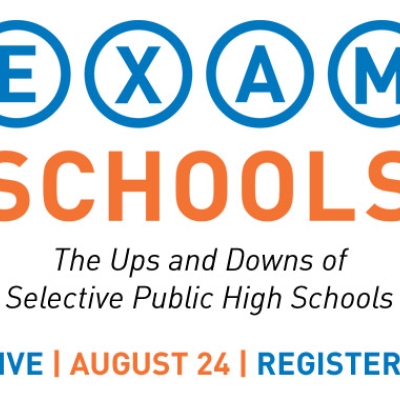Over at Education Week’s Bridging Differences blog, our own Mike Petrilli and educator Deborah Meier have been engaged in a spirited back and forth about the role that poverty plays in education. Allow me to chime in, first by suggesting that while poverty matters, we are nowhere close to maximizing our educational potential, even given the current level of poverty.
I'm concerned that many of the same people who seem to be implying that few further gains can be made in educational outcomes without first solving the poverty problem also seem to have near-total faith in the power of the right government program to address any societal problem that comes our way. Education reformers and advocates for the poor ought not to allow for the creation of this sort of vacuum whereby the poverty conversation is dominated by those who believe the only answers to poverty lie in more safety-net programs that may indeed worsen the cycle of poverty and government dependency. Instead, those who believe that education is the primary path to economic opportunity must also fight to ensure that real opportunities exist.
It’s no secret that our current economic recovery is languishing, with cratering workforce-participation rates and the unemployment rate for blacks north of 13 percent. These effects are especially pronounced in poor communities, and when children in those areas are surrounded by near-despair and hopelessness, it’s no surprise that some don't see education as a path to a brighter future. If they’ve never heard of “the American Dream” or regard it as something only relevant to the already privileged, educators will face an intractable challenge in persuading them to strive to learn more so as to advance their future. As education reformers, we owe it to these children to press for the maximization of educational outcomes while finding smart, effective, dignity-maintaining ways to fight poverty, too. We must not, however, be content to merely devise programs aimed at the despairing.
Rather, as Mike suggested in his most recent post, "A good many of our policies and programs, then, should be designed to help people with the drive, work ethic, tenacity, and motivation to rise. We should clear any obstacles in their path. We should empower them with opportunities. And, at all costs, we should avoid undercutting their efforts."
Mike's call to action brings a specific example to mind. In 1997, Dallas hair braider Isis Brantley was arrested for braiding hair without a state license. In Texas, as in many states, there is no license for hair braiding per se, meaning that braiders are required to get the same (costly and time-consuming-to-acquire) license as barbers or cosmetologists. The rules were subsequently changed in Texas after a long fight, but—according to the Institute for Justice, which has taken up her case—state regulators are now threatening to close the school where she teaches her craft to others. Texas says she is welcome to teach at a licensed school but cannot run her own school (which only teaches braiding) unless she jumps through enough hoops to make it a state-sanctioned barber college. To do that, Isis would need to take extensive, expensive courses that have nothing to do with braiding, while retrofitting her entire operation to meet state standards on everything from the physical size of the space to the installation of barber chairs and washing stations that, again, are irrelevant to her specialty—and her livelihood.
On the surface, all this might sound like just another example of the innovation-stifling regulations that education reformers fight every day. And it’s surely true that these regulations are denying Isis's students the ability to learn valuable skills. But they are also denying Isis, her employees, and her students a chance at economic opportunity. Texas is not alone in the illogical and cruel way it regulates this profession, nor is hair braiding an isolated example. As the Institute for Justice notes, "In the 1950s, only one in 20 U.S. workers needed government permission to pursue their chosen occupation. Today, it is closer to one in three. Yet research to date provides little evidence that licensing protects public health and safety or improves products and services. Instead, it increases consumer costs and reduces opportunities for workers."
Let’s work to promote education reform and fight poverty, because both matter tremendously. But just as education reformers have moved the policy dialog away from inputs like more money, programs, and staff and to outputs like accountability for student learning, so too must we fight to change the dialog about poverty from one that promotes policies that create dependency to one that promotes reforms aimed at economic opportunity.
